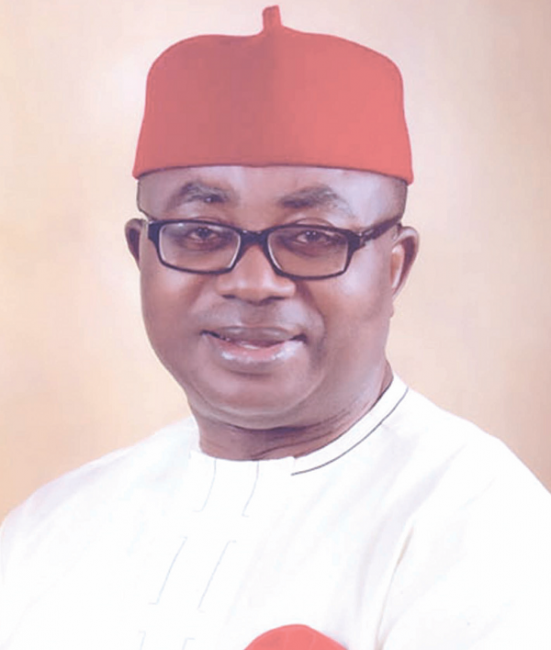For Nigeria to fulfill its commitment to the reduce carbon emissions by 30%, there are urgent needs for legislations and budgetary planning for infrastructure development that can be facilitated by the nation’s lawmakers.

This was the focal point of discussion at the Climate Change Knowledge Immersion Workshop series which was organised by the Federal Ministry of Environment’s Department for Climate Change and the World Bank for members of the National Assembly on Thursday, February 16 2017 in Abuja, the federal capital city.
According to the World Bank’s Practice Manager for Africa and Environment Resources, Benoit Bosquet, the lawmakers must work with the executive to enshrine incentives and modalities that will enable Nigeria achieve its commitment to reducing carbon emissions by 2030.
“This will be achieved when the lawmakers ensure that, for every budgetary plan, all projects are fully committed to climate proofing activities,” Mr Bosquet explained, adding that “this will definitely ensure sustainable development as such investments will be planned adequately from the beginning.”
He further enjoined the lawmakers on the need to also “create laws that will enable incentives for development of alternatives for the poor which will create wealth along with sustainable development.”
Using the example of firewood which is the main source of fuel for rural communities across Nigeria, the development expert opined that a law which will facilitate investments in production of alternative source of cooking is essential for the country.
“But, in the absence of that, policies on afforestation or reforestation should be put in place to make provision for the cultivation of new trees in place of the felled ones,” Bosquet said, adding that “effective policy-making and implementation is crucial to enable climate-smart economic growth, to attract investors to finance Green Growth, and to actively engage citizens.”
Director of Climate Change Department at the Federal Ministry of Environment, Peter Tarfa, during his presentation, urged the lawmakers to take the following actions for Nigeria’s INDC commitment:
- Legislate on and ensure constitutional changes for implementation of NDC across all levels
- Domesticate the Paris Agreement
- Strengthen governance and institutions for sustainable development at national and state levels
- Improve interactions among parliamentary committees to deliver Paris Agreement objectives
- Legislation effectively to support private sector investments in climate change issues
- Make green budgetary allocation by asking critical questions during budget defence on projects
- Device tax exemption polices for climate change investments
- Hold all MDAs and the executive accountable with increased engagement
Dr Tarfa further appealed to the lawmakers to come up with “laws and legal framework that will support the reduction of cost of imported solar panels and battery into the country”, as well as legislations that will enable the tracking of how Nigerians are individually contributing to the reduction of carbon emissions, such as people installing solar panels in their homes.
“This tracking will enable Nigeria ascertain its claim to achieving its NDC commitments,” he added.
Reacting to the issues, chairman House of Representatives Committee on Environment, Obinna Chidoka, announced that the House is “completing a legal framework for Nigeria to track the devastating impact of climate change and efforts made at reducing its carbon emissions.”
According to the lawmaker, “it is just 13 years to the deadline we have set for ourselves to cut emissions by 20%.” He called on all MDAs to work collectively to achieve the INDC commitment as he lamented their “discordant tunes” such as plans by the Ministry of Power to launch new power plants, powered by coal whilst their Ministry of Environment counterparts are clamoring for renewable energy.
Chairman, House Committee on Climate Change, Sam Onuigbo, in his remark commended the World Bank for organising the knowledge immersion workshop, noting that “there is a wide knowledge gap on issues of climate change in Nigeria and this is a major source of concern. We need more of such workshops and we are grateful to the World Bank for supporting this capacity building around the country.”
